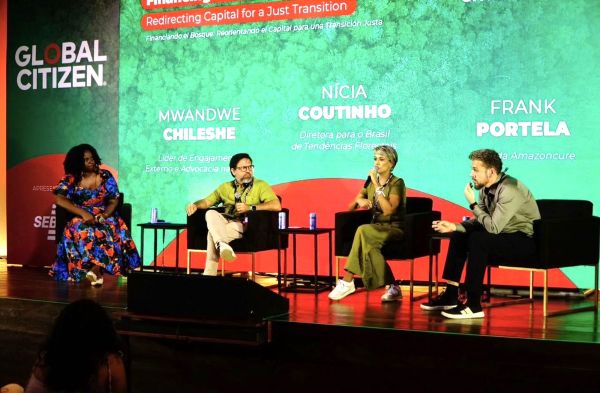The Alliance for a Green Revolution in Africa (AGRA) has called for a decisive shift from talk to action at COP30, urging world leaders to prioritize a farmer-first climate breakthrough that places soils, youth, and food systems at the heart of global climate action.
The call comes as the UN Climate Conference (COP30)—widely described as both the “Implementation COP” and the “COP of Truth”—opens in Belém, Brazil.
AGRA is urging governments and development partners to translate pledges into practical finance and policy packages that build resilience among Africa’s smallholder farmers, create jobs for youth, and unlock growth across food economies.
“Africa’s farmers are not waiting for the future; they are shaping it,” said Alice Ruhweza, President of AGRA. “A farmer-first climate breakthrough means turning promises into progress, converting finance into resilience, and transforming ambition into action where it matters most—on farms.”
AGRA believes COP30 offers a crucial opportunity to advance the adaptation and resilience agenda through agriculture and food systems. Throughout its engagements in Belém, AGRA will spotlight proven pathways for scaling impact, including coherent policies, fit-for-purpose finance, functioning markets, and soil health systems that sustain productivity—while putting youth and women at the center of Africa’s agricultural transformation.
This position aligns with the newly adopted Belém Declaration on Hunger, Poverty, and Human-Centered Climate Action, endorsed by 43 countries and the European Union. The declaration underscores that climate action and social justice are inseparable, calling for a rebalancing of climate finance to support populations most exposed to climate shocks. It emphasizes the need for climate-responsive social protection, insurance for smallholder farmers, and livelihood programs that foster long-term resilience.
AGRA supports this global shift and stresses that small-scale producers are not merely victims of the climate crisis but are key drivers of resilience and transformation.
“Resilience is built when the right policies, finance, and technical solutions meet at the farm level,” said Tilahun Amede, AGRA’s Director for Sustainable Farming, Climate Adaptation, and Resilience. “At COP30, together with partners, we aim to show how soil health, water management, inclusive finance, and stronger value chains can turn climate ambition into practical results for farmers—both for short-term gains and long-term resilience.”
The UNEP Adaptation Gap Report 2025 warns that developing countries face an annual shortfall of USD 284–339 billion in adaptation funding, with current flows meeting barely a tenth of that need. AGRA is therefore calling for a stronger push to channel climate finance directly to farmers and rural enterprises driving Africa’s food and job systems.
Soils and youth at the center of action
Years of land degradation have reduced yields and weakened resilience across Africa’s smallholder systems. According to the Africa Food Systems Report 2025, nearly 65 percent of productive land in Africa is degraded. AGRA is highlighting the urgent need to invest in soil health, promote diversified cropping, and enhance nutrient management through both organic and mineral sources.
The organization is also advocating for data systems that monitor soil health and productivity to guide national planning and investment.
On youth empowerment, AGRA’s agenda focuses on skills development, enterprise financing, and procurement opportunities that bring young Africans into higher-value roles across processing, logistics, and input distribution. The organization wants to see measurable progress on youth employment indicators and financing pathways for agri-SMEs capable of retaining young talent.
From declarations to delivery
Drawing on its experience across 15 African countries, AGRA argues that a delivery-first approach—tying finance to evidence-based actions—can help governments achieve climate and food security goals faster.
According to AGRA, the ultimate test of COP30 will be whether global commitments are translated into practical solutions that farmers can access.
AGRA is also a partner in the Growing Innovations Showcase, co-hosted by the Bill & Melinda Gates Foundation, Brazil’s Ministry of Agriculture and Livestock, Embrapa, AIM for Scale, CGIAR, the Chinese Academy of Agricultural Sciences (CAAS), the Forum for Agricultural Research in Africa (FARA), and the United Arab Emirates.
The showcase, which includes a high-level event on November 10 and a physical exhibition, will highlight affordable, climate-smart innovations designed for—and often by—farmers.


